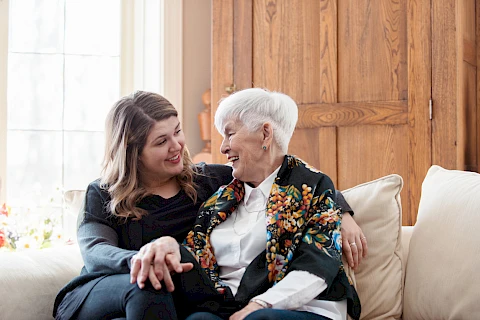
Discussing personal health and hygiene with an aging loved one can be challenging. Concerns about privacy, dignity, and autonomy often make these conversations emotionally charged, yet they are necessary for supporting comfort, safety, and overall quality of life. Many family members worry about causing embarrassment or tension, especially when roles in the relationship begin to shift. By approaching the discussion with empathy, clarity, and respect, it becomes possible to address sensitive topics while preserving trust.
The Importance of Talking about Health and Hygiene
Consistent attention to hygiene and health supports comfort, confidence, and long-term wellness for older adults. Beyond reducing the risk of infections and complications from chronic conditions, good hygiene can also improve mood, social engagement, and overall quality of life. When these needs are overlooked, issues such as skin infections, nutritional decline, or preventable injuries may arise. Family members can play a meaningful role by fostering a supportive environment, offering gentle reminders, and ensuring access to the proper assistance—whether that means helping directly or arranging for compassionate, trained caregivers through services like Senior Helpers Kelowna.
Preparing for the Conversation
Laying the groundwork before talking with a senior loved one about health or hygiene can help the discussion feel less stressful for both of you. Choose a calm, unhurried moment when they are at ease, and select a private, comfortable space where distractions are minimal. Consider how you will frame the conversation—focus on their comfort, safety, and independence rather than problems or shortcomings. Listen as much as you speak, allowing them to share their perspective, and be ready to acknowledge any feelings of embarrassment, frustration, or loss they may express. Patience, empathy, and a respectful tone can help create a more collaborative atmosphere, opening the door to positive change.
Starting the Conversation
Breaking the ice can be the hardest part. You might begin with an observation or question like, "I've noticed you seem to be having trouble with [specific task]. How can I help?" Active listening is crucial, so give them space to express their thoughts and feelings. If they become resistant or defensive, stay calm and reassure them you are there to support, not criticize, them.
Key Talking Points
When discussing hygiene and health, you may need to cover several talking points. Make sure you tailor the discussion to your loved one's specific needs.
- Bathing and grooming: Emphasize the comfort and cleanliness that regular baths can bring.
- Dental care: Highlight how oral health impacts overall health and encourage regular dental visits.
- Medication management: Discuss the importance of taking medications correctly and consider setting reminders together.
Empower them by involving them in decision-making, respecting their autonomy, and reinforcing the benefits of maintaining these habits, like feeling more energetic and staying healthier longer.
Navigating Changes in the Relationship
These conversations might shift your relationship dynamic. You might be stepping into a more active caregiving role, which can be emotionally challenging for both of you. Strive to maintain a relationship built on respect and support while supporting your senior loved one’s emotional needs during this transition. Acknowledge the emotional aspects and reassure your loved one that this change is about care, not control.
Get Support Managing Senior Health and Hygiene Needs
For families in Penticton, Lake Country, Summerland, Peachland, or Winfield, Senior Helpers Kelowna offers personalized care that supports the practical and emotional aspects of daily living. Our trained caregivers provide respectful assistance with bathing, grooming, oral care, dressing, and other health-related needs, as well as medication reminders to help maintain routines. This compassionate support allows seniors to feel comfortable, confident, and safe in their own homes while easing the strain on family caregivers. We can create a care plan tailored to their needs—helping them maintain dignity, independence, and quality of life. Contact Senior Helpers Kelowna to learn more about how our home care services can make a positive difference for your family.